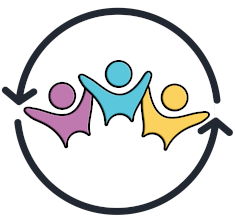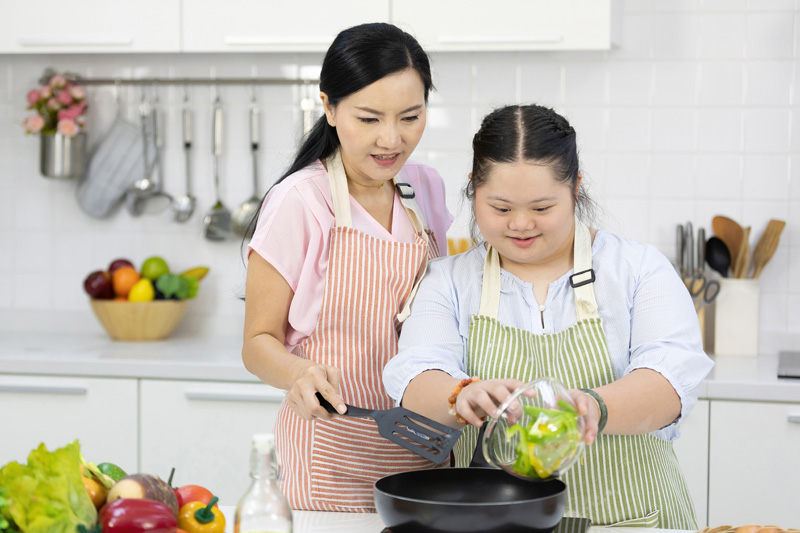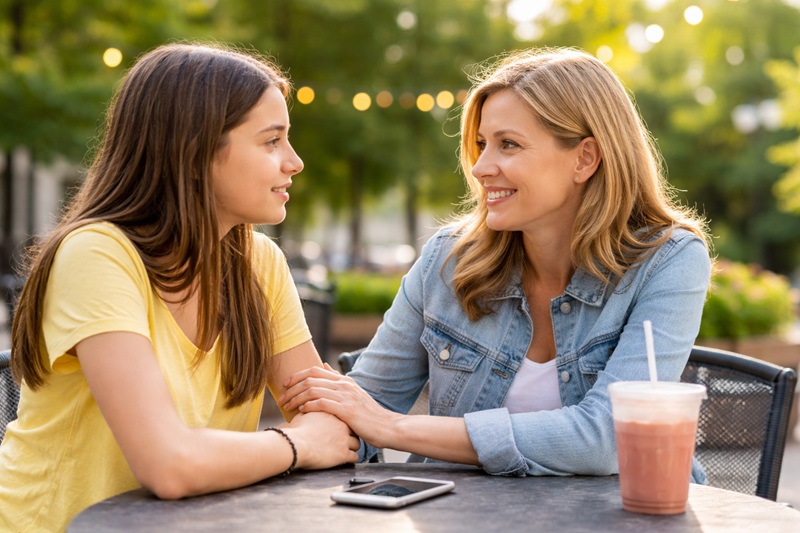In every individual’s life, there’s a journey—one that shapes who they are, how they interact with the world, and how they connect with others. For young adults with autism spectrum disorder and other disabilities, this journey is often filled with unique challenges, particularly when it comes to developing social skills. Many find themselves grappling with the complexities of communication, navigating social cues, and fostering meaningful relationships. But they don’t walk this path alone. Family members and caregivers have the power to be their greatest allies in this journey.
At Capability Connections, we believe that the role of family and caregivers is not just supportive but transformative. By actively engaging in the process, you can help unlock your loved one’s social potential, enabling them to thrive in social settings and build lasting, meaningful connections. This blog will explore how families can become an integral part of this journey, providing encouragement, creating opportunities for practice, and fostering an environment of growth and understanding.
The Power of Encouragement: Building Confidence from Within
Imagine walking into a room full of people, feeling unsure of what to say or how to act, overwhelmed by the pressure to fit in. For many young adults with Autism and other disabilities, this scenario is their reality every day. The fear of making a social misstep or being misunderstood can be paralyzing, preventing them from engaging in even the simplest of interactions. This is where encouragement plays a pivotal role.
Families and caregivers are often the most consistent and influential voices in their loved one’s life. Your words of encouragement can build their confidence, helping them believe in their ability to connect with others. Every small success—a smile, a friendly greeting, or a shared laugh—becomes a stepping stone toward greater social competence. Celebrate these moments, no matter how minor they may seem, because to your loved one, they are monumental.
Encouragement goes beyond verbal affirmations. It’s about creating an environment where mistakes are not feared but seen as part of the learning process. Social skills are not mastered overnight; they require patience, practice, and persistence. When your loved one faces a challenging social situation, remind them that it’s okay to stumble and that every effort they make is a victory. Empower them to try again, to step outside their comfort zone, and to embrace the potential for growth. Uncomfortable situations are there to help you grow! With your unwavering support, they will learn that socializing isn’t about perfection—it’s about connection.
Practice Makes Progress: Creating Opportunities for Social Growth
One of the most important ways families can support the development of social skills is by creating opportunities for practice. Socializing, like any other skill, improves with repetition and experience. But for individuals with intellectual disabilities, these opportunities don’t always come easily. It’s up to families and caregivers to take the initiative, to carve out spaces where social interactions can flourish in both structured and unstructured ways.
Start by identifying safe, familiar environments where your loved one can practice their social skills. This could be a family gathering, a small group of friends, or even casual interactions at a local café. Begin with low-pressure situations where they feel comfortable, gradually introducing more dynamic settings as their confidence grows.
One of the best ways to practice social skills is through role-playing. Sit down with your loved one and practice common social scenarios they might encounter—greeting someone new, asking a question, or engaging in small talk. Role-playing allows them to rehearse and refine their responses in a controlled, supportive setting. By doing this, you’re helping to build muscle memory around these interactions, making them feel more natural over time.
However, practice doesn’t always have to be formal. Encourage spontaneous moments of socialization during day-to-day activities. Whether it’s a trip to the grocery store or a walk in the park, these moments present valuable opportunities to practice greeting others, maintaining eye contact, and engaging in brief conversations. Remember, every interaction is a learning experience, and even small steps forward represent significant progress.
Fostering Connections: Creating a Supportive Social Environment
While practice and encouragement are vital, creating a nurturing environment for social growth is equally important. Families and caregivers can foster environments where their loved one feels supported and included, surrounded by people who genuinely care about their well-being. Social skills cannot thrive in isolation. They need the warmth and safety of a supportive community to grow.
Family gatherings are an excellent place for fostering connections. Engage other family members in creating a welcoming atmosphere where your loved one can feel comfortable expressing themselves. Encourage relatives to initiate conversations, involve them in group activities, and be patient with their responses. The more they feel valued within their immediate circle, the more likely they are to feel confident in broader social environments.
Moreover, you can involve siblings, cousins, or friends as role models, demonstrating positive social behaviors that your loved one can learn from. Watching their peers engage in conversation, navigate conflicts, or express empathy provides valuable lessons that cannot always be taught in a classroom setting. Social learning happens not just through direct instruction but through observation and experience.
The Journey of Social Growth: A Family Affair
Building social skills is not a solitary journey. It is one that families and caregivers embark on together, side by side with their loved ones. Capability Connections exists to support this process, but it’s the families who provide the love, encouragement, and opportunity that makes true social growth possible. Your role is crucial.
When families actively support the development of social skills, they are not just teaching their loved ones how to talk to others—they are helping them discover their self-worth, their place in the world, and their capacity to build meaningful relationships. You are giving them the confidence to face social situations with courage, knowing they are not alone.
So, as you continue to walk this journey with your loved one, remember that every step forward is a victory. Keep encouraging, keep practicing, and keep fostering connections. Together, you are building not just social skills, but a future where your loved one can thrive and feel the joy of meaningful human connection.
If you’re ready to take the next step, Capability Connections is here to help. Join our program, and together, we’ll unlock the potential for lasting friendships, stronger communication, and a lifetime of personal growth.



